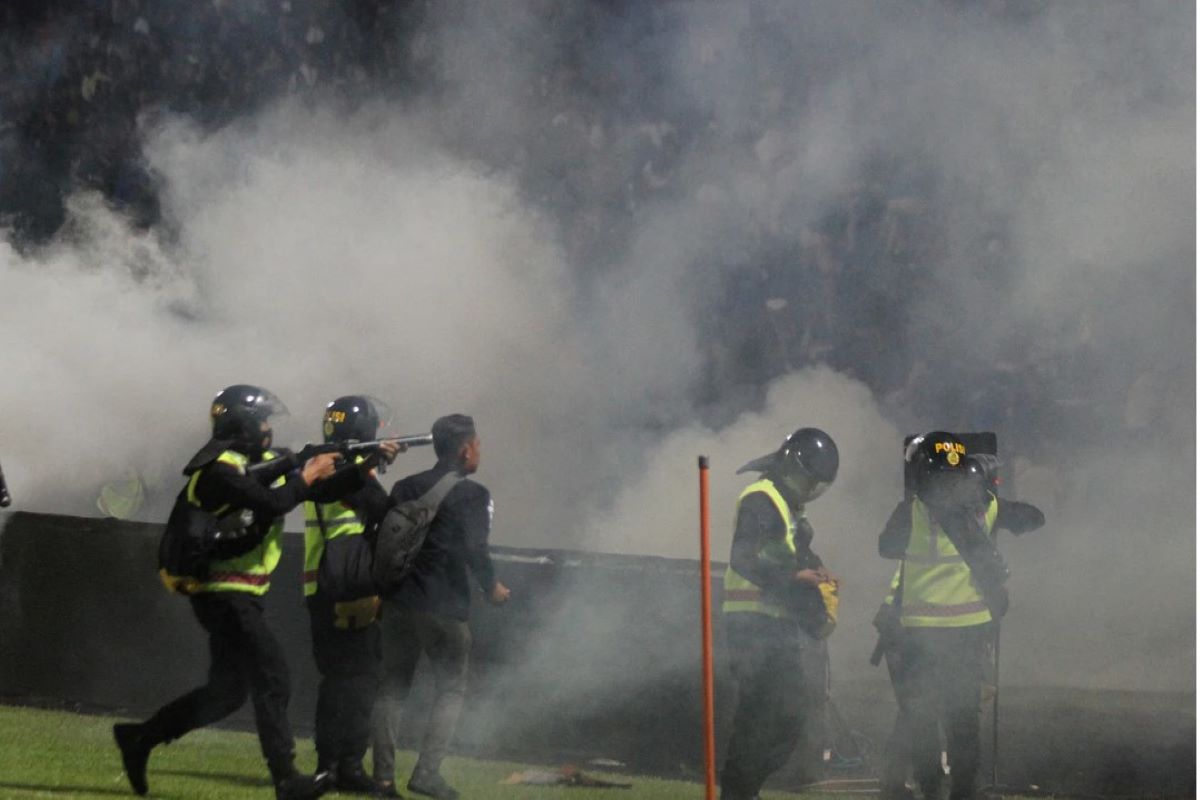India’s top 500 pvt cos value more than total GDP: Report
These companies value higher than the GDP of India and the combined GDPs of UAE, Indonesia, and Spain.
Spectators – including women and children – pushed and stepped on one another, scrambling through the packed terrace and gasping for air, to reach any exit at Kanjuruhan stadium in the city of Malang, East Java.

A dark day for Indonesia, at least 174 killed in stadium stampedePhoto: Reuters
Mr Sam Gilang rushed to the exit of the Indonesian football stadium with thousands of other terrified spectators as police fired tear gas and hit fans with batons, creating a stampede that police said claimed 125 lives.
“People were pushing each other and… many were trampled on their way to the exit gate,” the 22-year-old survivor of Saturday’s deadly tragedy told AFP.
Advertisement
Spectators – including women and children – pushed and stepped on one another, scrambling through the packed terrace and gasping for air, to reach any exit at Kanjuruhan stadium in the city of Malang, East Java.
Advertisement
Many of the victims were trampled or choked to death, police said, in what is one of the worst disasters in sporting history.
Mr Gilang lost three friends in the crush.
“It was so terrifying, so shocking,” he said.
A domino effect of tragic events unfolded after the final whistle in a 3-2 win for visiting team Persebaya Surabaya – the bitter rivals of Malang’s Arema FC.
Several thousand fans descended onto the pitch – some angry, some who wanted to join the crowd to shake the hands of players for home team Arema FC after the loss to their fierce rivals.
As horns blared and obscenities were shouted at the police from the crowd, they watched as their fellow fans ran across the grass.
But the police tried to force spectators back to the confined stands, pushing them with their batons and riot shields.
They then unleashed a hail of tear gas on the terraces in front of the stadium’s exit gates 12 and 13.
Police said there was a “riot”, but some witnesses rebuffed that description of events.
“There was no riot. I don’t know what the issue was, they suddenly fired tear gas,” 43-year-old spectator Doni, who declined to give his last name, told AFP.
“That’s what shocked me, didn’t they think about kids, women?”
‘Smoke spread everywhere’
Panic set in as the canisters rained down, causing hundreds to rush for the exit points.
“Smoke spread everywhere, I got hit and I panicked. The exit was already too crowded. I was confused and scared about which to take,” said 17-year-old Fian, who declined to give his last name.
With his eyes stinging and unable to breathe, Fian recalled people shouting at one another to “escape through the emergency exit to your left!” – potentially directing hundreds to a doorway wide enough for only one person.
Those who managed to get out emerged carrying lifeless bodies out of the stadium, inciting fury among the escaped spectators.
Supporters threw any item they could find – rocks, plastic bottles – at the police as officials tried to evacuate from the stadium.
Outside furious fans toppled police cars and trucks upside down, and then set them ablaze in an act of revenge for what had transpired.
“The police were so arrogant, they could have just directed the supporters,” Mr Gilang said.
“It’s enough to use the batons, no need to use tear gas.”
Back in the stadium, one of Mr Gilang’s friends lay dead in the home team’s changing room. He had been carried there after being trampled to death.
In the immediate aftermath, Indonesia is grappling with its own Hillsborough moment – the 1987 disaster in England that led to the deaths of 97 Liverpool fans during an FA Cup semi-final.
Indonesian President Joko Widodo said an investigation into Saturday’s tragedy will follow, as well as a safety review into all football matches, which are suspended until “security improvements” are completed.
But improvements or not, “now my parents said I am not allowed to go watch football any more”, Fian said. AFP.
Advertisement